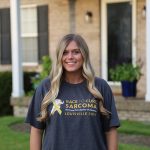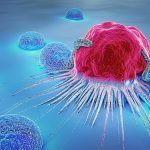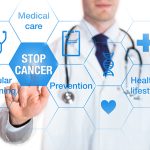-
Light at the End of the Tunnel for ASPS Patients
Immunotherapy has helped some young people with alveolar soft part sarcoma (ASPS), a rare cancer, but there’s more work to be done.
by Kyle Bagenstose
-
March 1: The Week in Cancer News
Many women must make decisions about preserving fertility while dealing with a cancer diagnosis, and head and neck cancer survivors face a higher stroke risk.
by Kevin McLaughlin
-
CAR T-cell Therapy: Understanding the Warning and the Risks
The FDA requires a warning with CAR T-cell therapies about an increased risk of cancer from the treatment. Should you be concerned?
by Sandra Gordon
-
February 23: The Week in Cancer News
Melanoma drug becomes first cell therapy approved to treat a solid tumor, and a new method for treating mesothelioma extended patient survival in a recent trial.
by Thomas Celona
-
Overcoming Lung Cancer Stigma With Understanding
Shirley Muñoz wants to use her experience as a younger lung cancer patient to break down barriers to care for her community through translation and advocacy.
by Cameron Walker
-
The More You Know About Cancer Prevention
Studies found awareness gaps about cancer prevention strategies such as screening and vaccination may reduce benefits from these tactics.
by Cancer Research Catalyst
-
February 16: The Week in Cancer News
Researchers explore a try-everything approach to precision medicine, and physical activity may help ease cancer pain.
by Kevin McLaughlin
-
Using Acupuncture and Massage to Manage Side Effects
New research finds acupuncture and massage are associated with pain reduction for patients with advanced cancer.
by Laura Gesualdi-Gilmore
-
February 9: The Week in Cancer News
Patients and doctors urge researchers to study lower doses for cancer treatments, and the FDA faces criticism for not issuing a formaldehyde ban in hair straighteners.
by Marci A. Landsmann
-
February 2: The Week in Cancer News
Improving fitness linked to lower prostate cancer risk, and a study from Scotland finds no cervical cancer cases in women vaccinated before age 14.
by Eric Fitzsimmons
Cancer Talk
Treatment Combination Improves Survival in EGFR-positive Lung Cancer
Adding chemotherapy to targeted therapy improves outcomes for people with advanced EGFR-positive non-small cell lung cancer.
by Sandra Gordon
Lessons From 20 Years Living With CancerMultiple myeloma survivor Jonathan Gluck reflects on uncertainty, and the scientific progress that has kept him living with cancer for more than two decades.
by Eric Fitzsimmons
The Enduring Importance of Cancer Disparities ResearchOpening session from AACR conference highlights how perseverance and adversity have informed cancer disparities research over the years.
by Eric Fitzsimmons
Most Cancer Survivors Don’t Meet Healthy Diet GoalsDespite research linking fruits and vegetables to cancer survival, many people do not change their eating habits after diagnosis.
by Darlene Dobkowski














